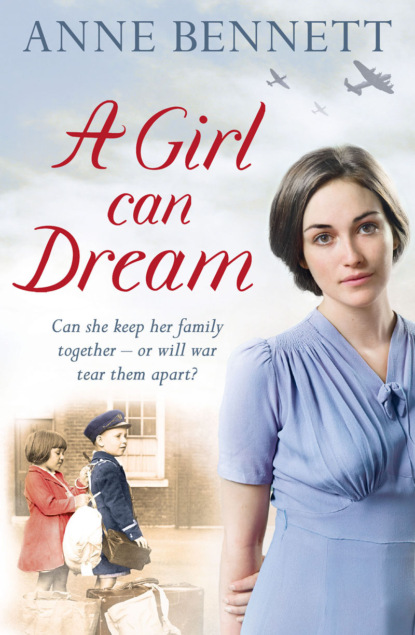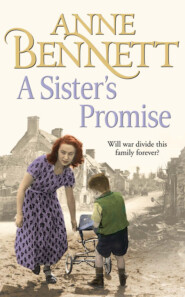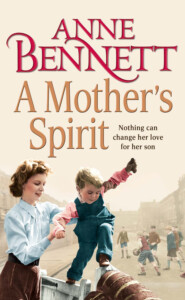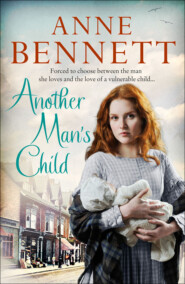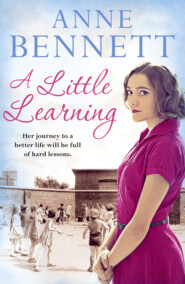По всем вопросам обращайтесь на: info@litportal.ru
(©) 2003-2024.
✖
A Girl Can Dream
Настройки чтения
Размер шрифта
Высота строк
Поля
The following day, Meg pushed her brothers and sisters off to school. Though they might not want to go, she felt it was best that they should keep to their usual routine, and in any case she had plenty to do that would be best done without the young ones getting under her feet. Rosie offered to look after Billy as he wasn’t yet at school and Meg accepted gratefully for she had the telegrams to send first, and then there was a pile of washing needing attention, and sometime during the day she had to squeeze in time to visit her wee sister in the hospital.
When she eventually got there the doctor told Meg that she should be proud of the baby’s tenacity, that after everything she’d been through, she was going to make it.
Meg let her breath out in relief. To her it made some sort of sense to her mother’s death that the baby she had been carrying had survived.
‘When can I take her home?’ she asked.
‘Oh, that’s a little way off yet,’ the doctor said. ‘She must weigh at least five pounds, and that might take a week, possibly two.’
‘Can I come and see her?’
‘Of course,’ the doctor assured her. ‘She is still in the special care baby unit and when she is a little stronger you may be able to give her a bottle. You will have to get used to doing that anyway.’
‘Oh, yes,’ said Meg. ‘I would love to . .’
Afternoon was turning into evening as Meg scurried home, collecting Billy on the way, knowing the children would all be sitting there with their tongues hanging out; her father, too, because he hadn’t gone to work that day. However, if Meg had thought he might be some support for her, then she was disappointed. She’d known he had taken himself off to the Swan after the meal she had put before them all, but the children told her that while she had been at the hospital he had staggered home at closing time and was in bed sleeping it off . .
‘It’s how many men deal with things,’ May told her when they met in the yard as Meg was bringing in the washing. ‘I often think that it is women who are the copers in this world. A man loses his wife and goes to pieces, and yet if a woman loses her man she will roll up her sleeves and work to feed and clothe her children and get on with it without moaning much. Now your father has lost the love of his life, so don’t expect him to just get over it as you will have to.’
In the light of May’s words, Meg was patient with her father when she woke him to have his dinner, and she bit her lip when he sat at the table bleary-eyed and complaining that the food wasn’t a patch on what Maeve would put before him. Meg had been too busy to make anything more than a scratch meal using the meat and vegetables intended for the previous day, and was stung by the criticism.
However, to prevent herself either flying into a rage or dissolving in tears, Meg told her father about her visit to see the baby.
‘Ruth is definitely going to make it now,’ she said. ‘So that’s good news.’
‘Is it?’
‘Oh, Dad, of course it is.’ Meg insisted. ‘She will be able to come home when she is over five pounds in weight. I can’t wait for that.’
‘Don’t see why,’ Sally said.
‘Why do you say that, Sally?’ Meg said. ‘I thought you liked babies.’
‘I do,’ Sally maintained. ‘But not this one, not Ruth.’
‘Why on earth don’t you like our own baby?’
‘’Cos if she hadn’t been born, our mommy would still be alive,’ Sally said.
Meg was astounded. Sally was only seven years old and Meg wondered if she had overheard the others talking about it. ‘Is this how you all feel?’ she asked, glaring at them all around the table; she knew by the uncomfortable glances they exchanged with one another that they did.
‘You can count me in as well,’ Charlie said. ‘Don’t expect me to get excited over a baby that robbed me of my wife.’
‘How can you blame one small helpless baby for Mom’s death?’ Meg cried, patience with her father gone. ‘The truth is, Mom shouldn’t have been expecting at all, and the fact that she was can’t be laid at little Ruth’s door. I take it you won’t be going to see her?’
She was met by a wall of silence. ‘All right then,’ she screamed. ‘Have it your way, but I will visit every day until the time I can bring Ruth home. And when that time comes, she is never to feel any sign of this resentment. And that goes for you all,’ she added, looking at each one of the children in turn.
The children looked aghast, waiting for their father’s reaction, but he didn’t respond. Meanwhile Meg felt such misery envelop her that she knew if she stayed in the house a minute longer, she would burst into floods of tears. She strode purposefully to the door, stepped into the street and shut it behind her with a resounding and very satisfying slam.
She had no plan of where she wanted to go. She felt all churned up inside and so she set off for Calthorpe Park, where she walked alongside the Heath, passing the bandstand where the brass bands played on Sundays. She could see boys having a kick-about with a football on the far side, and a couple of families packing up after a picnic. It was a peaceful scene and began to soothe Meg’s bruised soul.
Courting couples arm in arm were strolling along the banks of the river Rea, which were overhung with weeping willows, or walking under the canopy of trees by Pershore Road. And the bees taking in the last of the sun busily buzzed amongst the flowerbeds, which were a riot of colour. Meg gave a sigh that was almost one of contentment.
She strolled all over the park, drinking in the peace and tranquillity, taking her time, so that the sun was beginning to sink below the horizon when she turned for home. It was quiet when she went in and all the pots and pans, she saw, had been washed, dried and put away. Only Terry was up, reading a comic.
‘Where is everyone?’
‘Jenny, Sally and Billy are in bed.’
‘And Daddy?’
Terry’s eyes met Meg’s and she burst out, ‘He has gone back to the Swan, hasn’t he?’
Terry shrugged. ‘S’pose. He said he was going to see Uncle Robert.’
‘And that’s where the two of them will make for,’ Meg said grimly. ‘May said men often deal with loss by drinking too much, though I can’t for the life of me see what good it does. I hope Dad gets a grip on himself soon.’
‘And me,’ Terry said gloomily.
‘Did you just stay up to wait for me?’
‘And to say sorry,’ Terry said. ‘Maybe Mom shouldn’t have had this baby, but I know a bit of how babies are made and once you are having one, it’s too late then to wish you weren’t. But I got to thinking that the baby hasn’t had any say in it either, has she?’
‘No,’ Meg said. ‘And that was the point I was trying to make.’
‘I know,’ Terry said. ‘I should have had more sense, and I will try and make the others feel the same before she comes home.’
‘Oh, Terry, that’s great,’ Meg cried, for she was very fond of her twelve-year-old brother and had been disappointed with his initial reaction. ‘It will be a poor welcome for Ruth to come to a house where no one wants her.’
‘I got to thinking that too after you left,’ Terry said. ‘Anyway, I’m sorry for upsetting you.’
‘None of us is thinking straight since Mom died,’ Meg said. ‘Concentrating on the baby helps me, because it’s something positive.’
‘Here’s something else positive,’ Terry said. ‘Though maybe not so pleasant.’
‘What?’
‘A telegram was delivered while you were out,’ Terry told Meg. ‘Mom’s parents are coming for the funeral.’
When she finally met them, Meg didn’t care for either of her maternal grandparents one bit. Sarah Mulligan was a small woman, but a stout one. Her face was the colour of putty, and so creased and wrinkled it reminded Meg of a dried-up old prune. The wrinkles didn’t hide her thin tight lips, though, or her blue eyes that looked so cold that shivers ran down Meg’s back.
Conversely, everything about Maeve’s father, Liam Mulligan, was oversize. He was a tall man, and beefy, with enormous shoulders, a very large stomach and hands twice the size of her own father’s. He had an exceedingly red face with rheumy brown eyes and slack, bulbous lips.
However, it wasn’t just how they looked that Meg found off-putting, it was also their manner. They expressed no sorrow at the loss of a daughter, nor any sympathy for the family. They gave the children scant attention and little affection, but they were very quick to find fault and Meg found them very unwelcome guests.
On the morning of the funeral, all the Halletts – even Billy – were dressed in black. Meg’s long dark brown hair was up in a chignon, which Miss Carmichael had shown her how to do when she was going to the interview at Lewis’s and it had immediately had made her appear older and given her confidence – she thought she needed both qualities that day. The sun shone from cornflower-blue skies, though it seemed a mockery for the day to be such a bright one when their spirits were so low. The children’s aunts and uncles and grandparents had already gone to the church, and it was just the Hallett family left to walk together, Meg leading the way and her father bringing up the rear, as they walked along Bell Barn Road and down Bristol Passage on to Bristol Street, where St Catherine’s Church stood. All those not attending the Requiem Mass stood at their doorways in respectful silence and watched them pass.
The church was packed and Meg told herself she shouldn’t be so surprised, for her mother had been very popular, but it still warmed her heart to see so many there, including Miss Carmichael and the doctor standing at the back.





